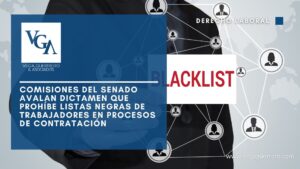On June 22, 2022, the International Centre for Settlement of Investment Disputes (ICSID) published the 2022 ICSID Rules and Regulations, for resolving international investment disputes, which came into effect the past July 1, 2022.
Since 2006, the ICSID did not carry out an amendment process to the Regulations and Rules previously mentioned. Although it is true that these new innovations introduced in the Regulations and Rules of 2022 do not modify the procedural nature of the last regulation, they do include various measures to increase the transparency and efficiency of the procedures. The new rules include an abbreviated procedure, mediation and fact-finding rules, increased transparency and a duty to disclose third-party financing.
Yet, these new measures adopted to improve the efficiency of the procedures are quite interesting, such as the implementation of mandatory conferences of case management, the possibility to consolidate or coordinate related cases, the reduction of the terms of the different processes and mandatory terms for the issuance of arbitral awards and decisions. The parties will also have to their disposition new expedited arbitration rules, which reduces case time in half and, in consequence, the costs.
Before the amendments were made, the average arbitration lasted some more than three years. According to the ICSID statistics, in 2015 the average arbitration (between the date of the constitution of an arbitral tribunal until its conclusion) lasted, on average, 39 months.
Nevertheless, as a consequence of such amendments, a new brief modality called ‘Expedited Arbitration’ was created. Such modality is an investment arbitration process where the parties may agree to submit to the rules provided in Chapter XII of the ICSID Arbitration Rules, which establish a procedure more efficient in dispute resolutions. Expedited Arbitration aims to speed up the processing of the entire procedure, reducing the time the main actions are taken in the process. Some relevant Rules establish the following:
- About the agreement of the parties to an Expedited Arbitration, it is stated that, at any moment, both parties can consent that the arbitration is processed faster in conformity with Chapter XII of the ICSID Rules, notifying jointly in writing their will to the Secretary-General.
- Chapters I-XI of the Arbitration Rules will be applicable to an Expedited Arbitration, except for Rules 15, 16, 18, 39, 40, 41, 42, 44, and 46 which, along with other specific assumptions, are not applicable in an Expedited Arbitration.
- – The Tribunal shall consist of a Single Arbitrator appointed in conformity with Rule 77 or three Arbitrators appointed in conformity with Rule 78. The parties shall notify jointly in writing to the Secretary-General their decision to a Single Arbitrator or a Tribunal with three arbitrators within 30 days after the notification of the agreement stated in Rule 75(1). If the parties do not notify the Secretary-General of their decision in the term referred in paragraph (2), the Tribunal shall consist of a Single Arbitrator that shall be appointed according to Rule 77.
- An Arbitrator appointed according to Rule 77 or 78 shall accept the appointment and give a declaration according to Rule 19(3) within 10 days after receipt of the request for acceptance of an appointment.
- Once the Tribunal is duly constituted, the Tribunal will hold the first session in conformity with Rule 29 within 30 days after the constitution of the Tribunal. The first session may be held remotely unless both parties and the Tribunal agreed to hold it in person.
- Rule 81 determines the Procedural Schedule in the Expedited Arbitration:
- The claimant shall file a memorial within 60 days after the first session;
- The respondent shall file a counter-memorial within 60 days after the date of filing the memorial;
- Both documents referred to in the previous paragraphs shall be no longer than 200 pages.
- The claimant shall file a reply within 40 days after the date of filing the counter-memorial.
- The respondent shall file a rejoinder within 40 days after the date of filing the reply.
- The reply and rejoinder shall not be longer than 100 pages.
- The hearing shall be held within 60 days after the last written submission is filed.
- The parties shall file statements of their costs and written submissions on costs within 10 days after the last day of the hearing referred to in the previous paragraph.
- The Tribunal shall render the Award as soon as possible, and in any event no later than 120 days after the hearing referred to in paragraph 7.
- The Tribunal may grant a party in default a grace period not to exceed 30 days pursuant to Rule 49.
- Finally, rule 86 establishes the Opting out of Expedited Arbitration. It is stated that the parties may opt out of an expedited arbitration at any time by jointly notifying the Tribunal and Secretary-General in writing of their agreement. On the other hand, when the request is made just by one party the Tribunal may decide that arbitration should no longer be expedited. In deciding the request, the Tribunal shall consider the complexity of the issues, the stage of the proceeding, and all other relevant circumstances.
If the process is followed duly, an expedited arbitration will conclude within 470 to 530 days after the registration date in a single procedural with no bifurcation, which is the half time of what a normal arbitration takes.
Indeed, the implementation of this brief arbitration is the product of a great effort made to reduce costs and to make this dispute resolution process more accessible to small investors, favoring the dispute resolutions of quantities reduced.
Small investors with limited resources or parties that would like to solve a dispute whose amount is small, may find a special attractive on these kinds of brief procedures for their potential to reduce time and costs for their processing.
The institutional fees are typically assessed based on three criteria (alone or combined). Those criteria are: (1) the time of the arbitration; (2) the amount of the dispute; (3) the work done by the institution. Furthermore, some institutions charge registration fees or accommodation at the beginning of the procedure. For example, the ICSID demands payment of $25.000 USD to request the beginning of the arbitration. Once it is registered a request for arbitration, the ICSID charges a fixed annual administrative fee that is currently $42.000 USD. These charges are independent of the size and complexity of the claim and the work done by the ICSID.
It is still too early to know if this expedited arbitration is going to be attractive for both parties since it is necessary that both parties agree to adopt the rules that will allow making this brief arbitration possible. Otherwise, the ordinary process will continue to be chosen. In fact, an interesting question is born: Wouldn’t it have been more effective to establish a mechanism that automatically refers to arbitration for cases in which the amount does not exceed a certain limit?
The disputes of small amounts in investment arbitration are no necessarily easier, smaller, or less complex than those with big amounts, but the most modest amounts at stake argue in favor of a proportionate and moderate approach to solving these cases.
Although there is an upward trend due to the adoption and implementation of brief arbitration, there is little public data available about the prevalence of this type of claim.
However, the ICSID informed that of 394 investment cases registered between January 1, 2010, and December 31, 2021, in which the amount claimed could be identified, 108 cases (about 27%) were referring to claims inferior than 50 million USD composed as follows:
- 21 cases (about 5%) referred to claims of 10 million USD or less;
- 32 cases (about 8%) referred to claims between 10 and 20 million USD; and
- 55 cases (about 14%) referred to claims between 20 and 50 million USD.
From that statistics, it is possible to see that matters of small amounts are indeed common in investment arbitration. Owing to this, it is totally relevant to follow-up on the efficiency that this amendment will have on the preponderance of matters of this nature. On the whole, it will be necessary to see if the fact that the brief arbitration must be agreed upon by both parties doesn’t make the adoption of this type of procedure ineffective.
[1] https://icsid.worldbank.org/es/noticias-y-eventos/comunicados/el-ciadi-publica-la-version-2022-de-sus-reglamentos-y-reglas




